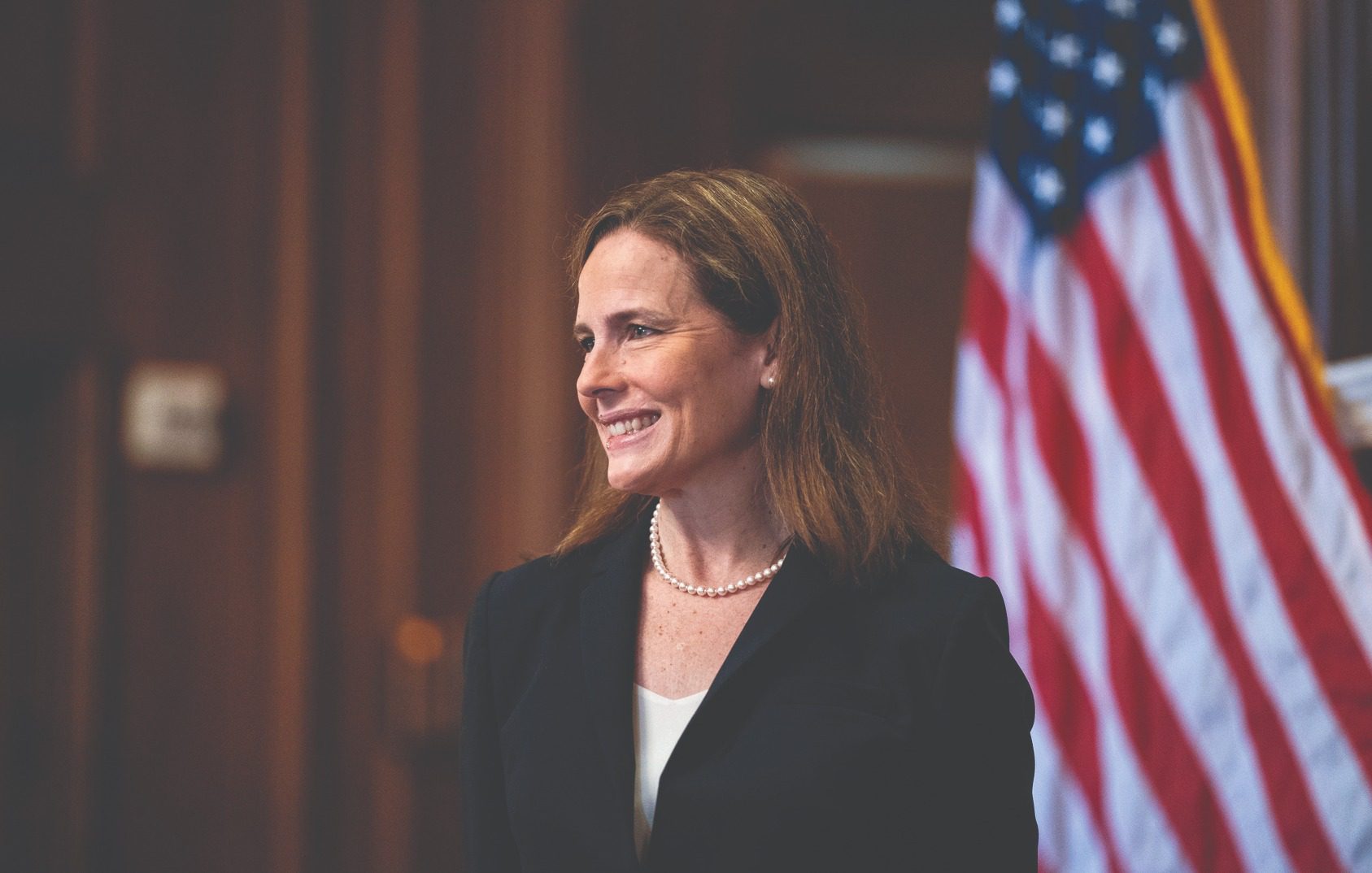Justice Barrett Brings A Badly Needed Voice Of Reason To SCOTUS’s Bench


 Hard-core conservatives are unlikely to get their fondest wish from the U.S. Supreme Court: a decision wiping out Obamacare. But business owners and investors should celebrate the advancement of Amy Coney Barrett to the court. Her brief track record as a federal appeals court judge includes a number of decisions that come down firmly on the side of keeping judges out of policymaking, enforcing contracts and observing strict limits on the jurisdiction of federal courts to hear cases at all.
Hard-core conservatives are unlikely to get their fondest wish from the U.S. Supreme Court: a decision wiping out Obamacare. But business owners and investors should celebrate the advancement of Amy Coney Barrett to the court. Her brief track record as a federal appeals court judge includes a number of decisions that come down firmly on the side of keeping judges out of policymaking, enforcing contracts and observing strict limits on the jurisdiction of federal courts to hear cases at all.
This last detail may sound arcane, but for business it matters a lot. One of the more important cases the court will decide in the 2020-21 session is Nestle USA v. Doe, over whether foreign plaintiffs can sue U.S. corporations under the Alien Tort Statute. This one-sentence law dating back to 1789 was retooled by human-rights lawyers in the 1980s as an all-purpose weapon for suing corporations over their alleged support for violent dictators, death squads and the like.
The Supreme Court has repeatedly pruned back the reach of the ATS in recent decisions. With Nestle, it is poised to take it away entirely by ending a split among federal appeals courts over whether it applies to corporations, as opposed to individual people.
Justice Barrett never had the opportunity to rule on the ATS during her three years on the Seventh Circuit Court of Appeals. But in the roughly 50 civil opinions she wrote there, she ruled consistently in favor of strict enforcement of jurisdiction rules, as well as honoring arbitration agreements and summary judgment decisions that spare companies from the risk of a jury trial.
She ruled against Grubhub drivers who argued they weren’t compelled to arbitrate disputes with the company. And in a decision that will warm the hearts of business executives, she rejected a class action by a woman who claimed her debt-collection letter lacked some technically required words but who couldn’t identify any injury she suffered from it.
“The bottom line of our opinion can be succinctly stated: No harm, no foul,” ACB wrote.
Similarly, she rejected federal court jurisdiction over a lawsuit challenging Chicago’s decision to permit President Obama’s presidential library in a public park. And she dismissed an attempt by the Teamsters to bar a special master from attending grievance procedures involving union members, ruling the Teamsters wasn’t a party to the original lawsuit over workplace discrimination that put the special master there, so it had no right to challenge his presence in court.
In another case with implications for the current Supreme Court session, she dismissed a lawsuit against AT&T based on a phrase in the Telephone Consumer Protection Act that she said was “enough to make a grammarian throw down her pen.” Admitting the law doesn’t make clear sense, she said the court couldn’t insert a missing word to make it more coherent.
On the Supreme Court, she will hear a similar lawsuit, Facebook v. Duguid, involving the same question of whether any device that can “store” and “automatically dial” phone numbers—i.e., a modern smartphone—is an “automatic telephone dialing system” under the TCPA.
Her Seventh Circuit decision lays out the stakes and provides a good indication of how she’ll rule again.
“It is worth noting the far-reaching consequences of (the plaintiff’s) ungrammatical interpretation: it would create liability for every text message sent from an iPhone,” now-Justice Barrett wrote in her February 2020 decision. “That is a sweeping restriction on private consumer conduct that is inconsistent with the statute’s narrower focus.”

Chief Executive Group exists to improve the performance of U.S. CEOs, senior executives and public-company directors, helping you grow your companies, build your communities and strengthen society. Learn more at chiefexecutivegroup.com.
0

1:00 - 5:00 pm
Over 70% of Executives Surveyed Agree: Many Strategic Planning Efforts Lack Systematic Approach Tips for Enhancing Your Strategic Planning Process
Executives expressed frustration with their current strategic planning process. Issues include:
Steve Rutan and Denise Harrison have put together an afternoon workshop that will provide the tools you need to address these concerns. They have worked with hundreds of executives to develop a systematic approach that will enable your team to make better decisions during strategic planning. Steve and Denise will walk you through exercises for prioritizing your lists and steps that will reset and reinvigorate your process. This will be a hands-on workshop that will enable you to think about your business as you use the tools that are being presented. If you are ready for a Strategic Planning tune-up, select this workshop in your registration form. The additional fee of $695 will be added to your total.

2:00 - 5:00 pm
Female leaders face the same issues all leaders do, but they often face additional challenges too. In this peer session, we will facilitate a discussion of best practices and how to overcome common barriers to help women leaders be more effective within and outside their organizations.
Limited space available.

10:30 - 5:00 pm
General’s Retreat at Hermitage Golf Course
Sponsored by UBS
General’s Retreat, built in 1986 with architect Gary Roger Baird, has been voted the “Best Golf Course in Nashville” and is a “must play” when visiting the Nashville, Tennessee area. With the beautiful setting along the Cumberland River, golfers of all capabilities will thoroughly enjoy the golf, scenery and hospitality.
The golf outing fee includes transportation to and from the hotel, greens/cart fees, use of practice facilities, and boxed lunch. The bus will leave the hotel at 10:30 am for a noon shotgun start and return to the hotel after the cocktail reception following the completion of the round.